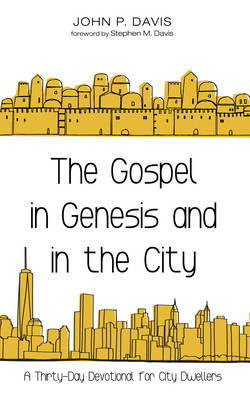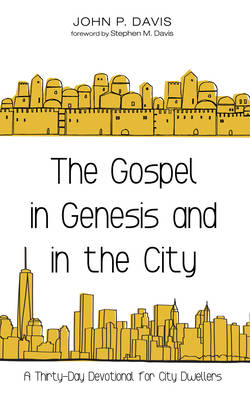
- Afhalen na 1 uur in een winkel met voorraad
- Gratis thuislevering in België vanaf € 30
- Ruim aanbod met 7 miljoen producten
- Afhalen na 1 uur in een winkel met voorraad
- Gratis thuislevering in België vanaf € 30
- Ruim aanbod met 7 miljoen producten
Zoeken
The Gospel in Genesis and in the City
A Thirty-Day Devotional for City Dwellers
John P Davis
Hardcover | Engels
€ 34,95
+ 69 punten
Uitvoering
Omschrijving
Genesis offers insight and encouragement to those who live and minister in urban environments. Though the world began in a garden-temple, it eventually arrives at an urban temple. There are indications in Genesis that those who are made in God's image seek community, and urban living offers the promise of community. The first major attempt at city-building in Genesis represents man in rebellion against God. Contrariwise, the New Testament tells us that Abraham was looking for a city whose builder and maker was God. Abraham desired a city designed for worship, not a Babel-like monument to human rebellion. Human cities most often represent rebellion, not worship, and need redemption. Genesis offers much insight into how the unfolding story of the gospel relates to the desperate plight of urban dwellers as they futilely seek to find rest and community in urban temples that worship the creature rather than the Creator.
Specificaties
Betrokkenen
- Auteur(s):
- Uitgeverij:
Inhoud
- Aantal bladzijden:
- 78
- Taal:
- Engels
Eigenschappen
- Productcode (EAN):
- 9781725262140
- Verschijningsdatum:
- 9/04/2020
- Uitvoering:
- Hardcover
- Formaat:
- Genaaid
- Afmetingen:
- 127 mm x 203 mm
- Gewicht:
- 204 g

Alleen bij Standaard Boekhandel
+ 69 punten op je klantenkaart van Standaard Boekhandel
Beoordelingen
We publiceren alleen reviews die voldoen aan de voorwaarden voor reviews. Bekijk onze voorwaarden voor reviews.











